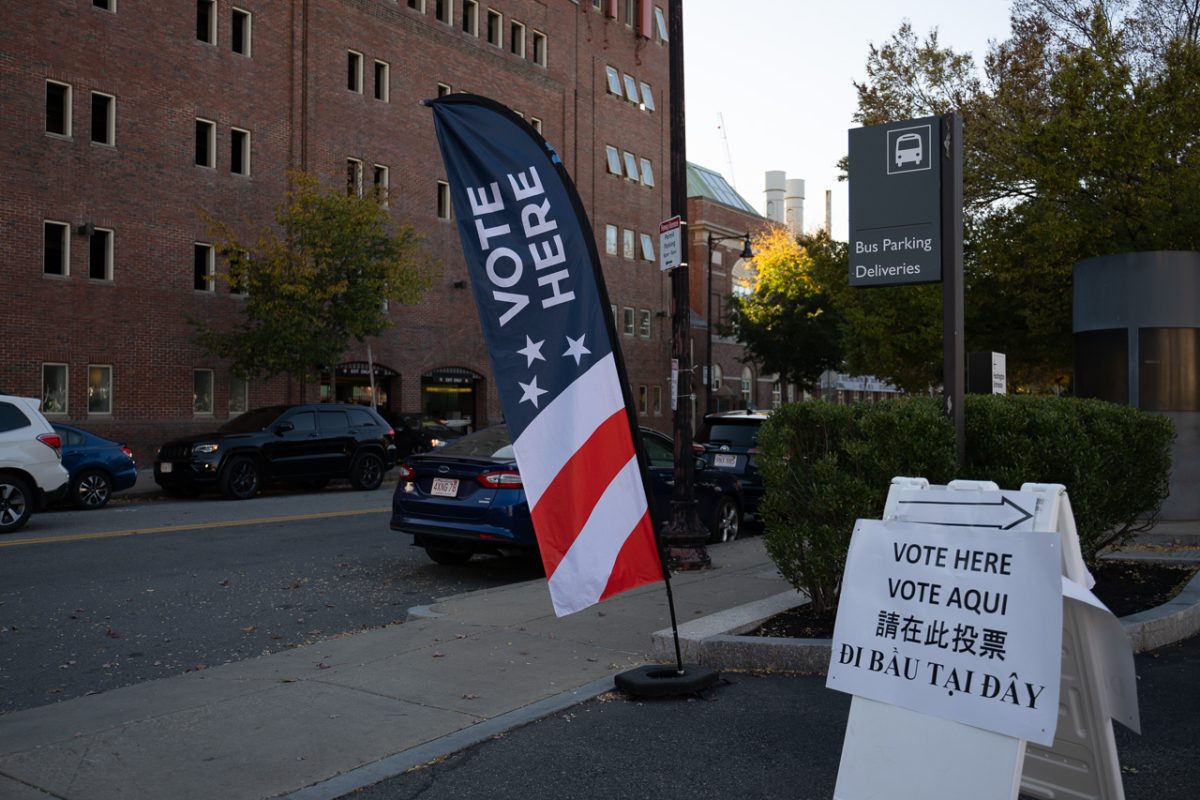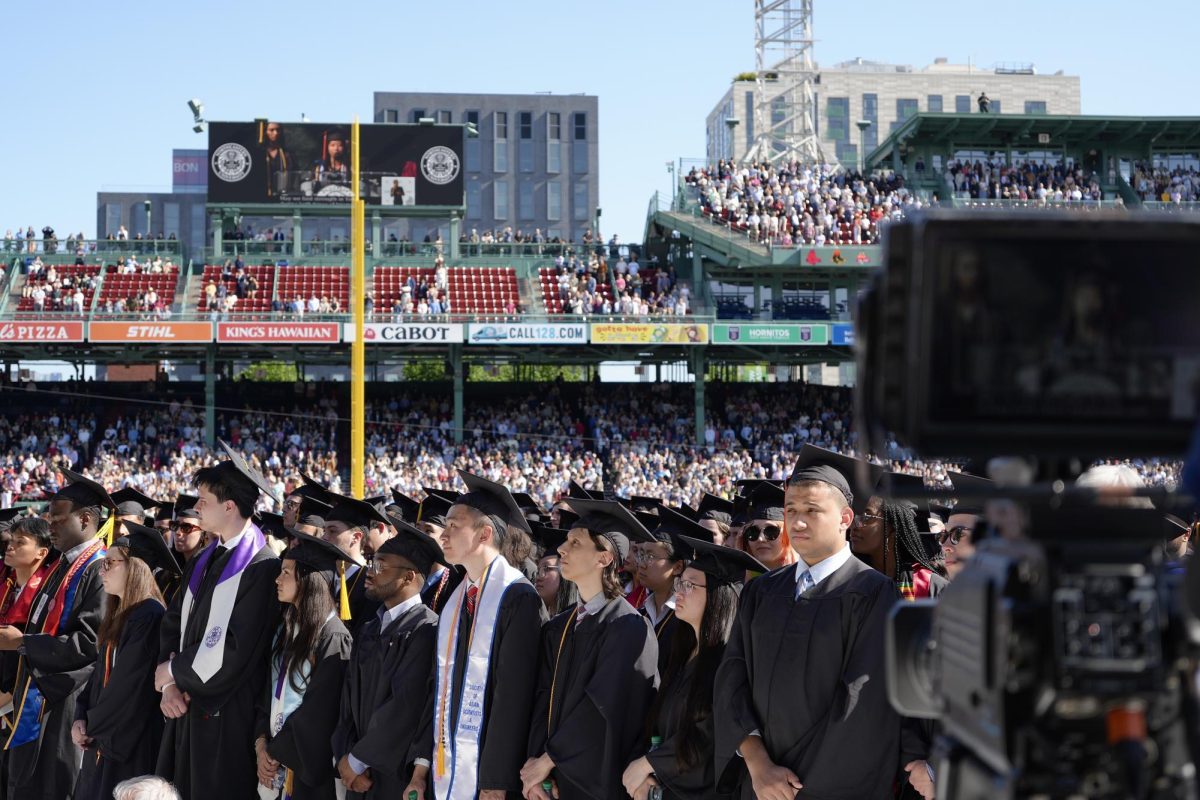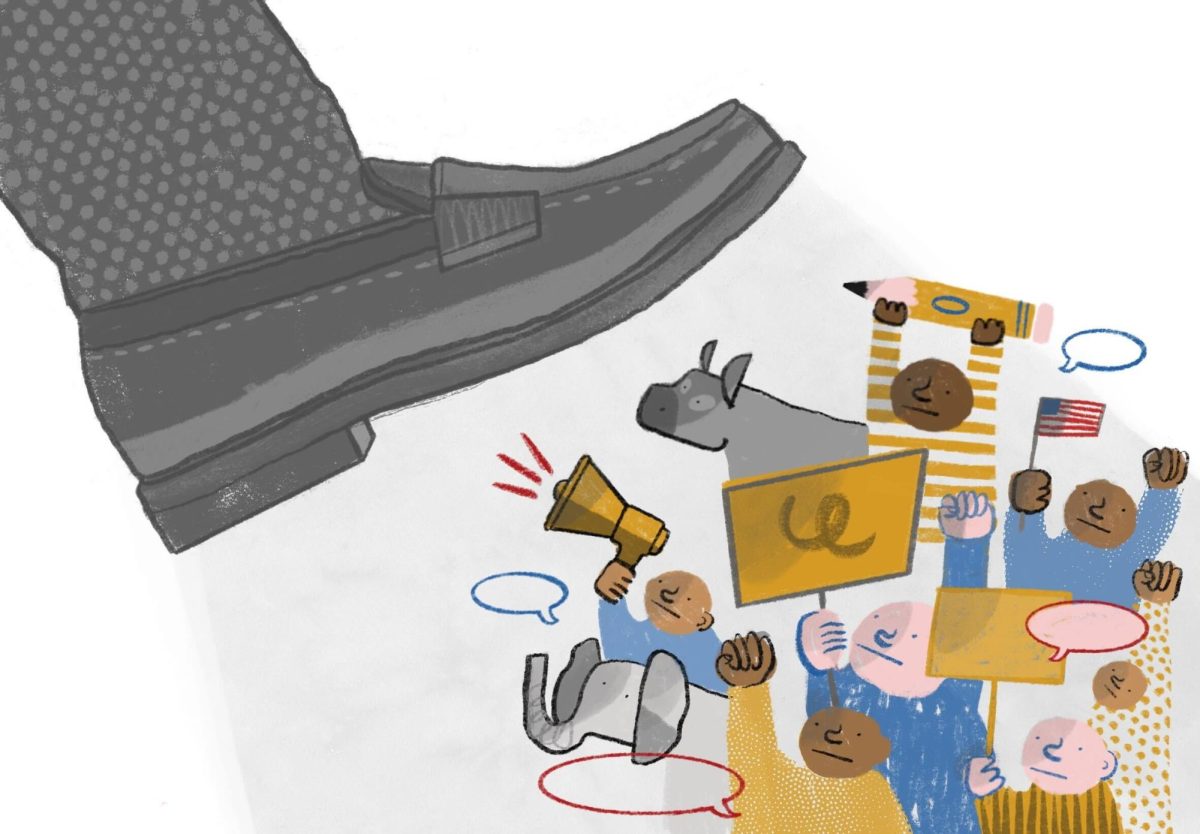It feels like today’s presidential election has garnered more political anxiety from the voting population than any past election. As a 19-year-old first-time voter, I find myself wondering if this is how it’s always been.
The answer is no. According to the American Psychological Association, the 2016 presidential election garnered stress for 52% of adults — the highest on their record at the time. Now, the percentage sits at 69% of adults. This yearly survey, Stress In America, also found that 77% of adults reported that “the future of our nation” was a significant source of stress, making it the most common point of stress in the 2024 survey.
I believe the reasons for this heightened election anxiety is due to advancements in four areas: echo chambers and biased media, an unbalanced growth of capitalism, fear of losing social and financial stability and a deep misunderstanding between Americans about what it means to be American.
To start, biased or false media spans from completely fabricated content spread on the internet to mainstream media failing to portray the complexity of an issue, all of which can lead to falsified views. Echo chambers, the term for environments where individuals are exposed only to information that reinforces their existing beliefs, also exacerbate misconceptions and fuel unnecessary fear. When truth around candidates, events, policy and further political issues are misconstrued, election anxiety is heightened. The Trump and Harris campaigns capitalize on inaccurate views with fear-based messaging because it can quickly persuade undecided voters and energize their supporters.
In our digital age, we stew in a surplus of media and information. Much of the media we seek out contributes to confirmation bias, which strengthens echo chambers. I’ve learned this type of behavior is explained by selective exposure theory — people will only expose themselves to the media they want to hear.
When we Google something, it’s easy to click on the news outlet that we know will reinforce what we believe. On top of that, social media’s algorithms have understood and learned our biases so that we don’t even need to ask questions anymore — it will just feed us whatever it thinks we want to hear. These kinds of echo chambers are unforgiving — almost impermeable — and really good at making us comfortably complicit with the one-sided information we consume.
For example, last month, the false claim that Haitian immigrants were eating neighborhood pets and wild animals in Ohio went viral. The Trump campaign capitalized on people’s blind belief in false media by further spreading the false information. AI fabricated media fueled incorrect beliefs, which were spread and validated in peer echo chambers. This example is thick with psychological undertones because his campaign leveraged people’s love for animals and deep-seated racism against Haitian people to amass political momentum.
The unyielding state of capitalism is also contributing to election anxiety. As our middle class shrinks and homelessness rates continue to rise, achieving success — or even stability — within American capitalism feels increasingly impossible. As a result, people turn to politicians for solutions. If people feel their government is unstable and inefficient, there is bound to be heightened political anxiety and expectations for the future government to solve these issues. The divide over who will best provide that stability is creating further polarization and anxiety among voters.
The fear surrounding social and financial instability is a factor in this election cycle that is proving most difficult to talk about amongst differing perspectives. Groups on the political left and right are expressing fears — extreme and serious fears that are pressing and affecting people’s whole, short lives — including abortion, transgender rights, immigration and the Israel-Hamas war. Voters find stability on opposing sides of the same issues, making agreement difficult.
As a member of Gen Z, I believe the American people misunderstand what it means to be American. The United States is built on diverse cultures, beliefs, innovations and perspectives. Being American is not about shutting down the beliefs and practices of others — it is about affording everyone equal freedom, safety and opportunity.
American democratic systems, from the president down to the smallest community leadership, need to incentivize conversations between divided groups and make consequences for those who refuse to communicate and choose to hate blindly. Our unwillingness to communicate will continue to polarize us further, heighten political anxiety and eventually end this long era of American prosperity and desirability.
By recognizing why the election anxiety is high, my hope is that we can temper the stress and anxiety where it is fueled unjustly, work to communicate about it rather than fight about it and harness it to make positive change in the United States.
Hannah Little is a second-year journalism and communication studies combined major. She can be reached at little.ha@northeastern.edu.
The Huntington News is dedicated to serving the Northeastern University community with original, professional reporting and creating an environment in which student journalists can learn from one another. Support an independent, free press at Northeastern University with your donation today.
















